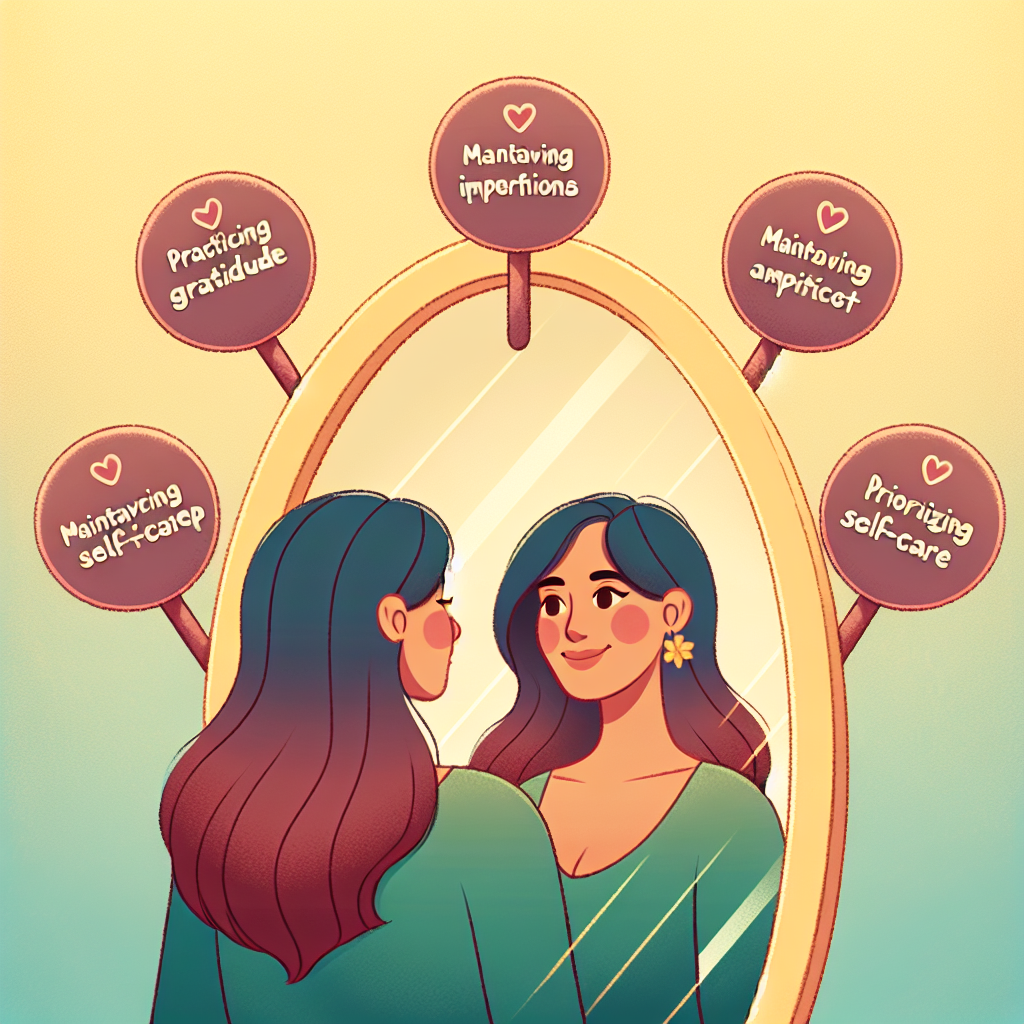Self-confidence is a crucial aspect of our mental well-being and overall success in life. It shapes the way we see ourselves, our abilities, and the world around us. Unfortunately, many people struggle with low self-esteem and a lack of confidence, which can hold them back from reaching their full potential. If you find yourself in this situation, fear not, as there are ways to boost your confidence and improve your self-esteem.
Here are 10 strategies to help you love yourself and boost your confidence:
1. Practice self-care: Taking care of yourself is essential for building self-esteem. Make sure to prioritize your physical, emotional, and mental well-being by eating well, exercising regularly, getting enough sleep, and engaging in activities that bring you joy. Self-care is not selfish – it is necessary for your overall health and happiness.
2. Challenge negative thoughts: Negative self-talk can be damaging to your confidence and self-esteem. When you catch yourself thinking negatively about yourself, challenge those thoughts by asking yourself if they are true and if there is evidence to support them. Replace negative thoughts with positive affirmations and self-compassion.
3. Set realistic goals: Setting goals that are attainable and rewarding can help boost your confidence. Start small and work your way up to bigger goals as you gain more confidence in your abilities. Celebrate your achievements, no matter how small, and use them as motivation to keep pushing yourself forward.
4. Surround yourself with positivity: Your environment plays a significant role in shaping your self-esteem. Surround yourself with positive, supportive people who lift you up and encourage you to be your best self. Avoid toxic relationships and situations that bring you down or make you doubt yourself.
5. Take risks: Stepping out of your comfort zone and taking risks can help build your confidence and self-esteem. Whether it’s trying a new hobby, speaking up in a meeting, or pursuing a new career opportunity, taking risks shows you that you are capable of facing challenges and overcoming obstacles.
6. Practice gratitude: Gratitude is a powerful tool for boosting self-esteem and increasing feelings of self-worth. Take time each day to reflect on the things you are grateful for in your life, no matter how big or small. Practicing gratitude can shift your focus from lack to abundance and help you see the positives in yourself and your life.
7. Be kind to yourself: Treat yourself with the same kindness and compassion you would show a friend. Be gentle with yourself when you make mistakes or face setbacks, and remember that nobody is perfect. Practicing self-compassion can help you build resilience and bounce back from challenges with confidence.
8. Improve your skills: Building competence in areas that are important to you can boost your confidence and self-esteem. Whether it’s learning a new skill, taking a course, or honing your talents, investing in yourself and your abilities can help you feel more confident in your own skin.
9. Practice mindfulness: Mindfulness is the practice of being present in the moment without judgment. Mindfulness can help you cultivate self-awareness, reduce stress, and increase self-acceptance. By practicing mindfulness regularly, you can develop a deeper connection with yourself and build a stronger sense of self-esteem.
10. Seek professional help: If you are struggling with low self-esteem and confidence issues, don’t hesitate to seek the help of a therapist or counselor. Therapists can help you work through underlying issues that may be impacting your self-esteem and provide tools and strategies to help you build confidence and love yourself.
In conclusion, boosting your confidence and improving your self-esteem is a journey that requires time, patience, and effort. By practicing self-care, challenging negative thoughts, setting realistic goals, surrounding yourself with positivity, taking risks, practicing gratitude, being kind to yourself, improving your skills, practicing mindfulness, and seeking professional help, you can increase your self-esteem and learn to love yourself unconditionally.
FAQs:
Q: How do I know if I have low self-esteem?
A: Low self-esteem can manifest in various ways, such as negative self-talk, self-doubt, seeking validation from others, avoiding new challenges, and comparing yourself unfavorably to others. If you struggle with feelings of worthlessness, inadequacy, or insecurity, you may have low self-esteem.
Q: Can low self-esteem be overcome?
A: Yes, low self-esteem can be overcome with time, effort, and support. By implementing strategies such as practicing self-care, challenging negative thoughts, setting realistic goals, and seeking professional help, you can boost your confidence and improve your self-esteem.
Q: How long does it take to improve self-esteem?
A: The time it takes to improve self-esteem varies from person to person and depends on the severity of the issues being addressed. Some people may see improvements in their self-esteem relatively quickly, while others may require more time and effort to see significant changes. Consistency and persistence are key in building self-esteem.
Q: Is it normal to have moments of low self-esteem?
A: Yes, it is normal to experience moments of low self-esteem from time to time. Everyone faces challenges and setbacks that can impact their confidence and self-esteem. The important thing is to recognize these moments, address any underlying issues, and practice self-compassion and self-care to boost your confidence and self-esteem.




Leave A Comment